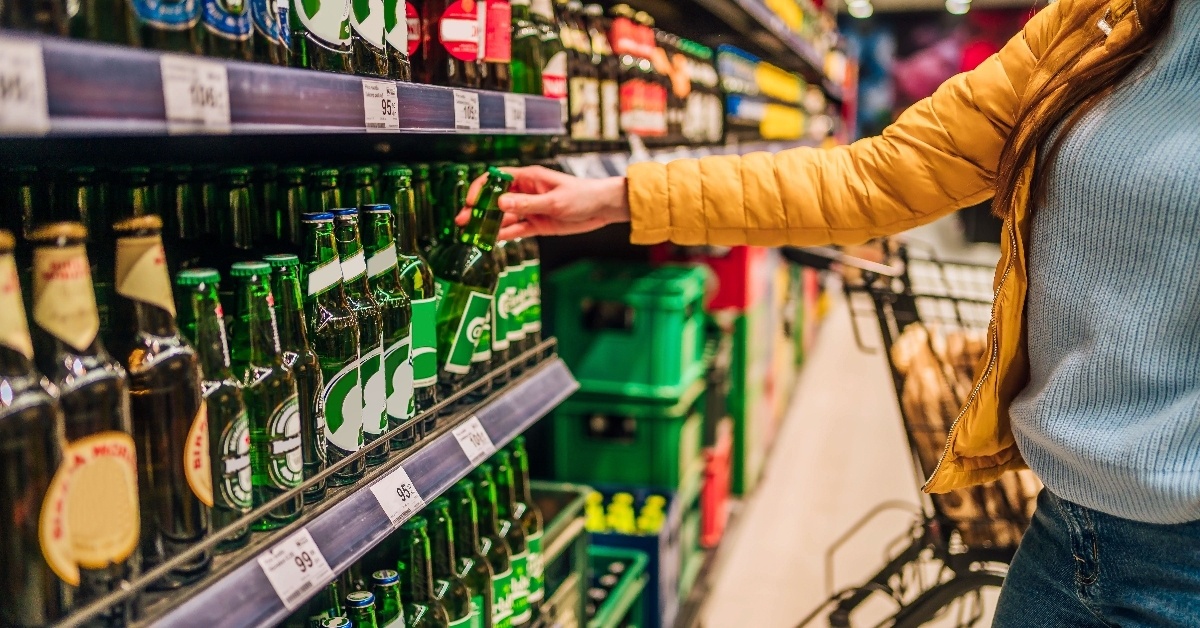A levy on retail outlets selling alcohol could raise £57m to be spent on local treatment, recovery support and prevention, a think tank has claimed.
Research from the Fraser of Allander Institute at the University of Strathclyde has shown money raised on off sales alcohol could provide much-needed funding for supporting people with alcohol problems.
The research, commissioned by Alcohol Focus Scotland, suggests revenue from alcohol has increased by more than £30m per year across 2018 and 2019.
Alcohol off sales did, however, decrease by 3.6% in the first year of minimum unit pricing, which was implemented in May 2018, according to figures from Public Health Scotland.
According to the Social Market Foundation, alcohol costs Scotland up to £10bn every year, including £700m in health and social care costs.
As a result, the research suggests shops and supermarkets are “likely” making greater profits on alcohol.
Alcohol Focus Scotland says this demonstrates the potential for retailers that profit from the sale of alcohol to contribute more towards the financial burden it places on society.
Alison Douglas, chief executive of Alcohol Focus Scotland said: “Alcohol Focus Scotland has been campaigning for some time for the additional money from minimum unit pricing, which currently goes straight into the pockets of shops and supermarkets, to go back into the public purse.
“The Scottish Government has recognised the increasing number of deaths from alcohol – up by 25% in the last three years – as a public health emergency, but to tackle this issue needs appropriate funding.
“By redirecting some of this additional money, we can relieve the pressures that our health and social care services are experiencing and address the 40% decline in people accessing specialist alcohol treatment over the past decade.
“The call for a retailer levy is also backed by the NCD Alliance Scotland, who recognise the benefits of minimum pricing for the health of the nation but see the need to address the unfairness of where the money currently goes.”
Joao Sousa, deputy director of the Fraser of Allander Institute, said: “We were asked by Alcohol Focus Scotland to look at what revenue might be raised by a levy on sellers of alcohol exclusively for consumption off their premises, based on the non-domestic rates valuation roll.
“When the similar public health supplement was last in place in 2015, it was set at 13p. Setting the same rate today would bring in around £57m a year.
“Different rates would naturally lead to different levels of revenue – for example, we estimate a 10p rate would bring in around £44m, and a 16p levy would bring in around £70m.”
Based on a levy on non-domestic rates, the policy would principally affect big national supermarket chains, who the research found would make up 86% of all revenues.
The research considered different levels of levy, finding an increase in revenue of £4.4m for every 1p change in the levy rate.
Political support for a levy on alcohol retailers has been growing.
The Scottish Government committed in its recent budget to explore reintroducing the public health supplement, which raised £95m from a levy placed on non-domestic rates of large retailers selling alcohol and tobacco between 2012 and 2015.
Scottish Labour ia also calling for a public health levy to offset problems caused by alcohol in Scotland
A Scottish Government spokesperson said: “The Scottish Government is determined to do all we can to reduce alcohol-related harm and is working closely with alcohol and drug partnerships (ADPs) and the third sector to do so.
“In 2022-23, £106m was made available to ADPs, increasing to £112m in 2023-24. This funding is used to ensure that local services meet the needs of people who experience alcohol and drugs harms.
“The announcement in the Scottish Budget 2024-25 signalled the Scottish Government’s intent to explore the reintroduction of a public health supplement in advance of the next Scottish Budget. All relevant stakeholders will be consulted as part of that exploratory work.”
Follow STV News on WhatsApp
Scan the QR code on your mobile device for all the latest news from around the country




























